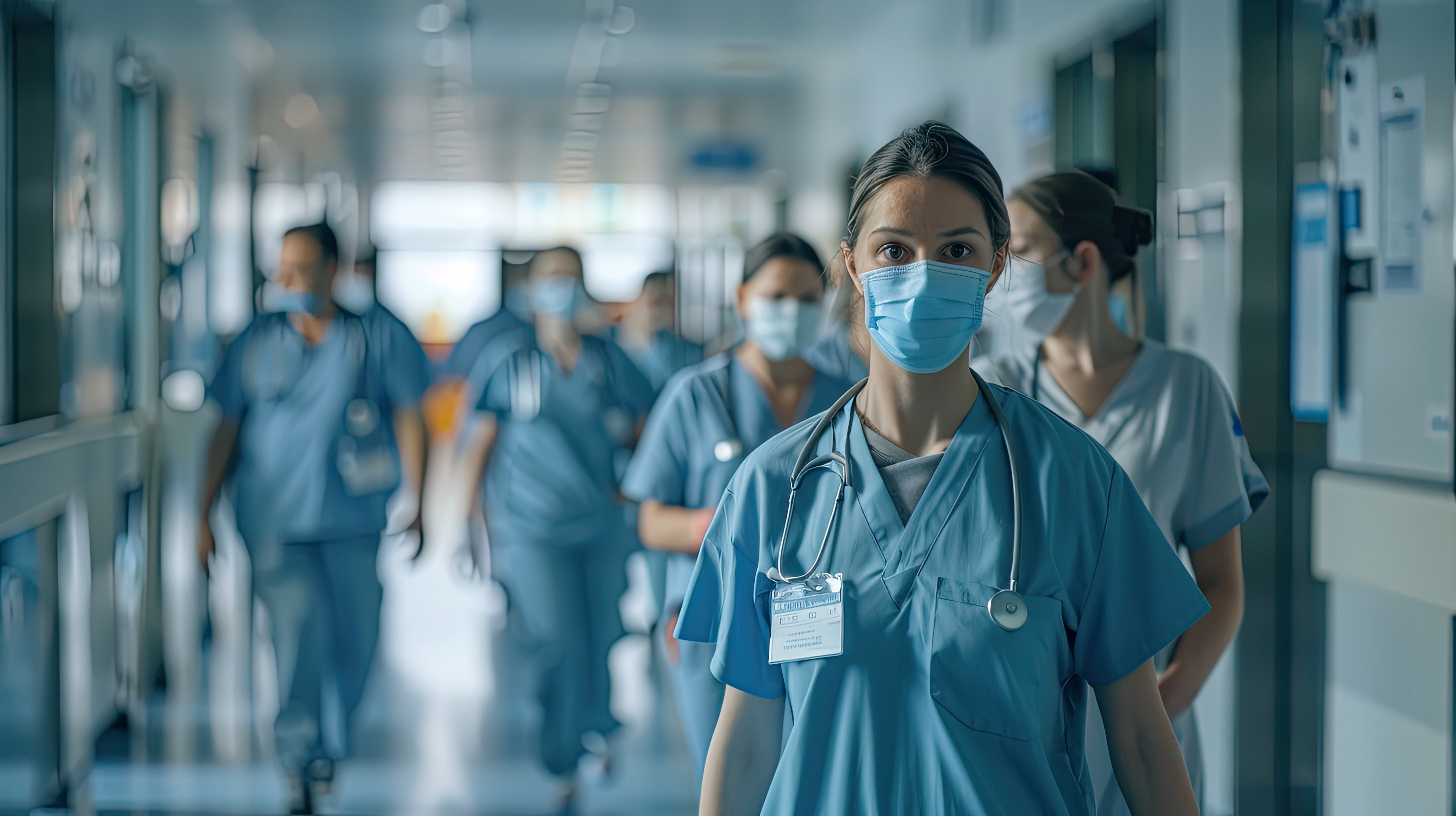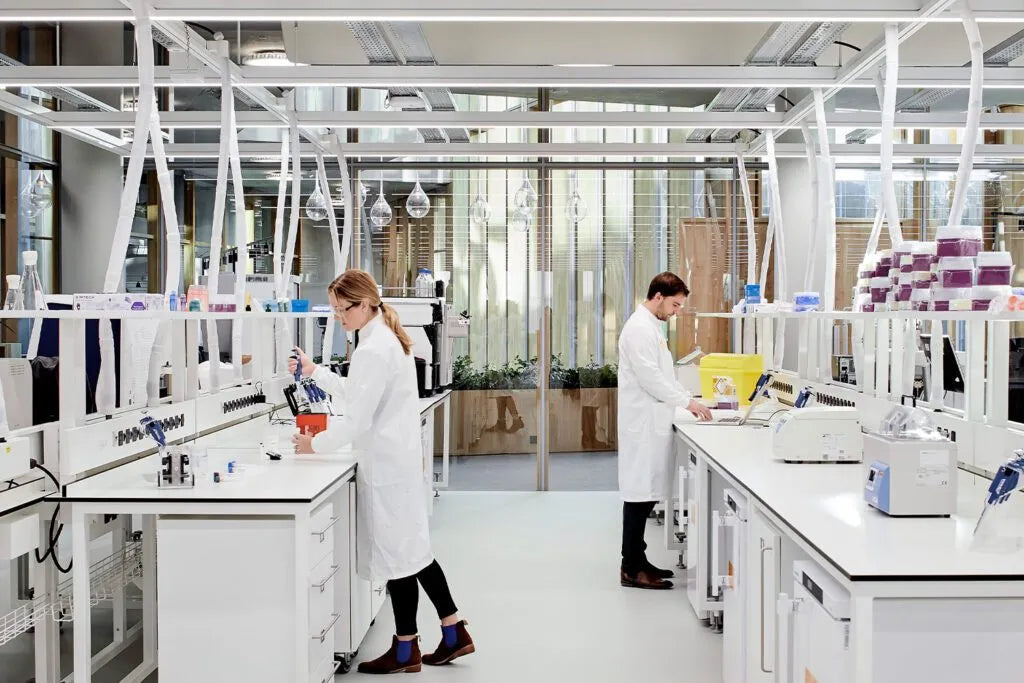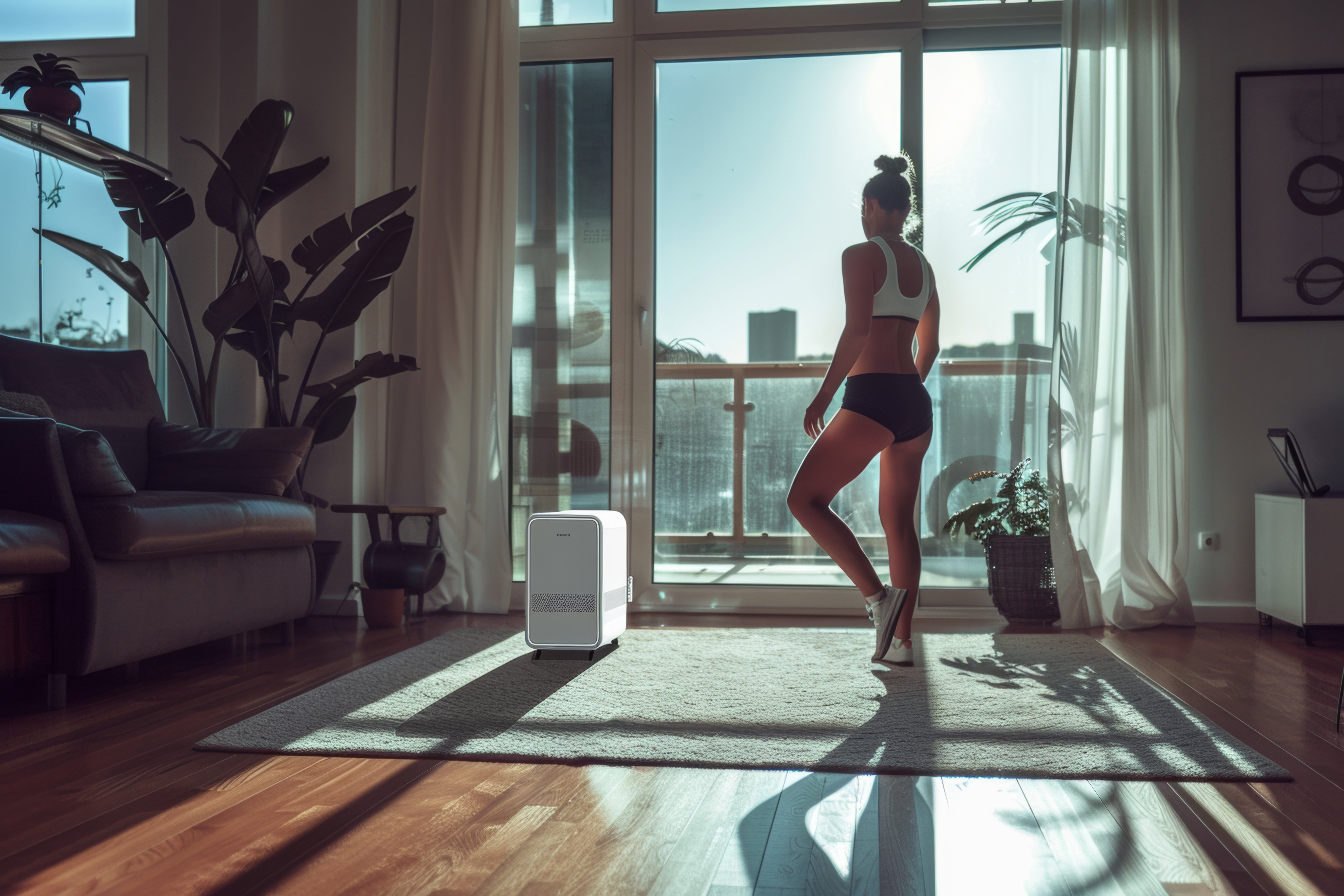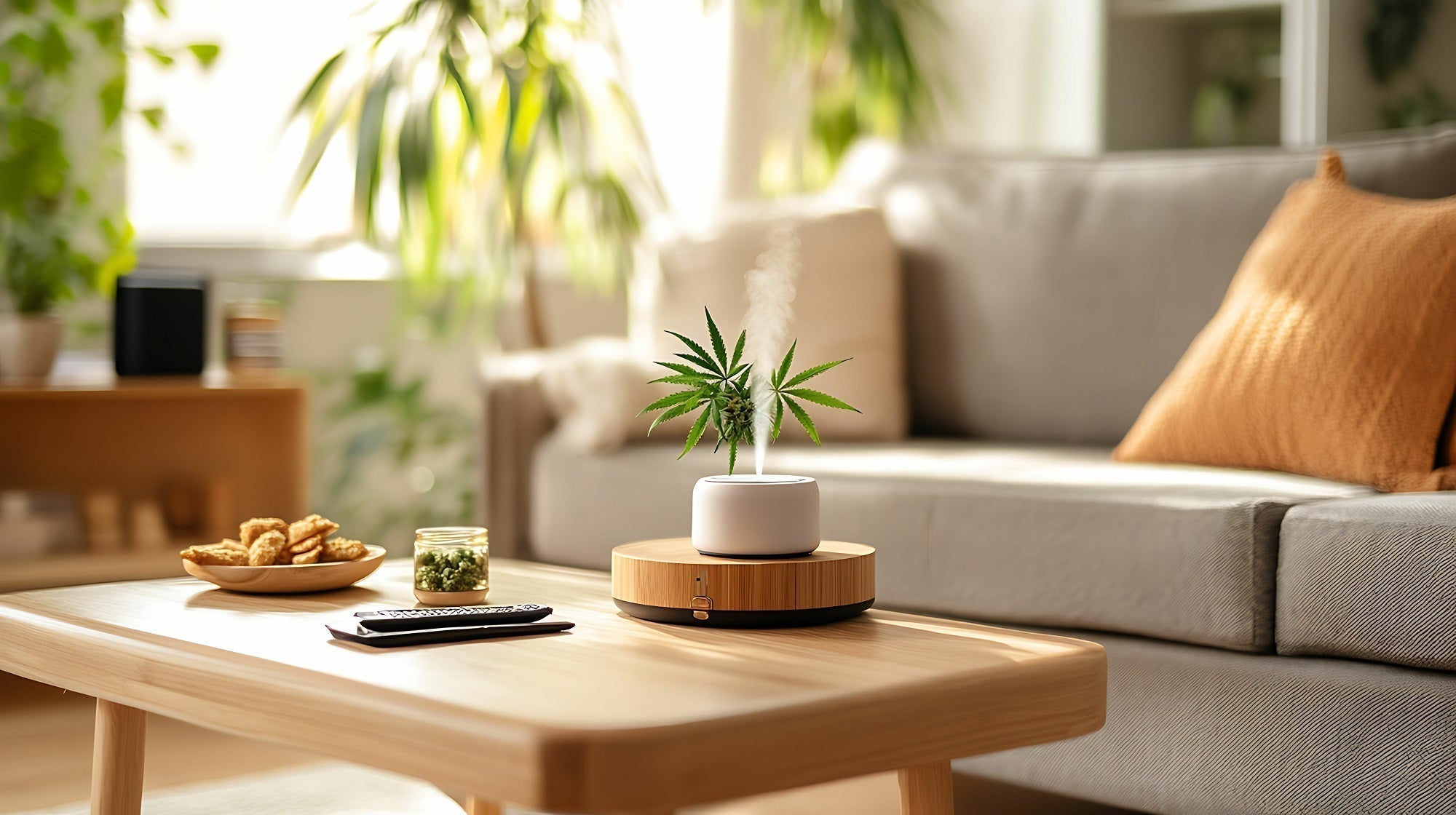Why Major Hospitals Are Reintroducing Face Mask Mandates During the 'Quad-demic'

A quadruple whammy of viruses known as the “quad-demic” is hitting the UK as people start to go back to work after the holidays. An early flu season coupled with high rates of COVID-19, vomiting-bug norovirus, and respiratory syncytial virus (RSV) has caused people to rush in droves to the hospitals. As healthcare systems brace for an overload, major hospitals, including the NHS, are reinstating face mask mandates to curb the spread.
But how does this impact hospital safety measures? Let’s understand the reasons behind this precaution and how advanced air filtration systems like the MedicAir air purifier play a crucial role in maintaining safe hospital environments.
The Case for the Return of Face Mask Mandates
While many of us were glad to get rid of our face masks, they are making a comeback due to the following reasons:
1. Controlling viral transmission
As multiple respiratory viruses are circulating the air, the Quad-demic has created a perfect storm for widespread infections. Face masks serve as a frontline defence against airborne particles, helping reduce transmission in high-risk environments like healthcare facilities. According to numerous studies, face masks when worn properly can block up to 95% of airborne particles, including those carrying viruses.
2. Protecting vulnerable groups
Besides treating people infected with any of these four viruses, hospitals also care for many immunocompromised patients, newborns and the elderly. All of these groups are especially vulnerable to severe complications from respiratory illnesses. Face mask mandates for hospital staff and incoming patients can help minimise the risk of infection to these individuals.
3. Preventing healthcare overload
As hospital systems face exceptionally high demand from patients suffering from a combination of flu, COVID-19, RSV, and norovirus, mandating face masks can help reduce the likelihood of hospital-acquired infections. Masks protect the wearers from inhaling virus-containing particles when visiting the hospitals. This will help keep the hospital beds available for those who truly need them.
4. Complementing other safety measures
Hospitals are reintroducing face masks not as a return to old norms but as part of a broader strategy to strengthen hospital safety measures. Alongside mandatory masking, they’re implementing rigorous sanitisation protocols, limiting visitor access, and using advanced air filtration systems like MedicAir air purifiers to maintain clean air circulation.
How the Quad-demic Increases the Need for Precautions
The Quad-demic isn’t just a health scare, it’s a logistical challenge. With four distinct viruses circulating simultaneously, hospitals must adopt a multi-layered approach to control the infection. Mask mandates and medical-grade air purifiers are two critical components of this strategy, working in tandem to reduce risks. While face masks block the immediate spread of respiratory droplets and airborne particles, air purifiers address longer-range airborne transmission by filtering out pathogens from the environment.
How Can MedicAir Air Purifiers Help?
Trusted by the NHS and WHO, MedicAir air purifiers are designed to reduce the risk of airborne illnesses and infections such as COVID-19, common cold and flu. Here’s how MedicAir can create a safe environment for patients, staff, and visitors:
1. Multi-stage filtration technology
MedicAir air purifiers use a combination technology of HEPA 13/14 activated carbon filters and safe UV technology to achieve up to 99.99% air filtration. Our medical-grade filters can trap microscopic particles, including bacteria and viruses, as small as 0.3 microns. They can help reduce the overall viral load in shared spaces like waiting rooms and patient wards.
2. Continuous air monitoring
Unlike standard air purifiers, MedicAir air purifiers leverage ReAKT technology that continuously monitors air quality. Upon detecting an increase in air contamination, the on-board laser sensors activate the unit’s motors accordingly. This makes sure that the filtration process adapts to real-time needs. Plus, users can access real-time data on the MedicAir app and control their unit remotely.
3. Whisper-silent operation
Designed for commercial spaces, our MedicAir Pro Max operates quietly and efficiently, allowing medical staff to focus on patient care without any distractions. With noise levels as low as 28 dB, it maintains a whisper-silent operation without compromising on air quality.
Closing Thoughts
As the Quad-demic pushes healthcare systems to their limits, major hospitals are taking no chances. Many healthcare facilities, including NHS hospitals, are relying on face mask mandates and MedicAir air purifiers to establish a comprehensive approach to controlling the spread of these viral infections. So, let’s join hands and stop the Quad-demic from becoming another healthcare crisis.
Recent Blogs
Independent Global Testing Confirms MedicAir’s Filtration Excellence
Two of MedicAir’s flagship systems – the MedicAir Pro and MedicAir Pro Max – have been independently verified for their outstanding performance in real-world environments, following rigorous testing conducted in Kuwait by international air filtration expert Dr Iyad Al-Attar.
Heatwaves and Indoor Air Quality: How MedicAir Safeguards Health and Productivity
The recent heatwave has brought swelteringly high temperatures across the UK, significantly impacting indoor air quality (IAQ) and indoor environmental quality (IEQ).
Why Indoor Air Quality Matters for Cannabis Grow Rooms
With MedicAir, you get more than just air purification–you get peace of mind, knowing your plants are thriving in a controlled, contaminant-free environment.


